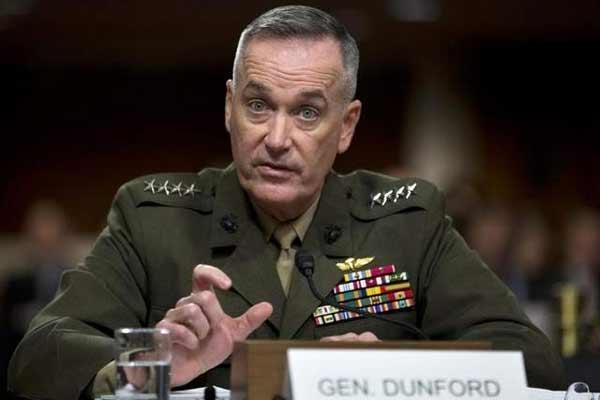The U.S. Defense Department's proposed budget for the war in Afghanistan may not come for several more weeks, as the top commander mulls how many troops should stay in the country.
The Pentagon requested a $615 billion overall spending plan for fiscal 2014, beginning on Oct. 1. That includes a base budget of $526.6 billion and a placeholder value of $88.5 billion for the war, known in military parlance as Overseas Contingency Operations, or OCO.
Decisions about how many U.S. troops to keep in Afghanistan “were delayed in order to provide commanders enough time to fully assess requirements," Defense Secretary Chuck Hagel said Wednesday in prepared remarks to the Senate Armed Services Committee. "We will soon be submitting an OCO budget amendment with a revised level and account-level detail."
How soon is unclear.
Marine Corps Gen. Joseph Dunford, commander of U.S. and coalition forces in Afghanistan, said he will recommend "a range of numbers" to President Barack Obama this spring and update them in the fall, possibly November.
"My recommendation will be that we refine that range after the Afghans assume the lead this summer," he told the House's counterpart panel. "In the fall, we will both have a feel for the Afghan security forces after their first summer and we’ll also see what conditions are set for the political transition, more specifically the elections that will take place in April.”
Dunford a day earlier said the updated figures would come in November. Also affecting the decision are negotiations between Washington and Kabul on a bilateral security agreement, he told the Senate panel on April 16.
The delay is frustrating some lawmakers.
"One of the reasons we're having so much difficulty in some areas is because the Afghans don't know what our commitment is,'' Sen. John McCain, R-Ariz., said during the April 16 hearing.
There are about 63,000 U.S. troops in Afghanistan, according to Navy Cmdr. Bill Speaks, a spokesman at the Pentagon. That's in addition to almost 40,000 troops from countries such as the United Kingdom, Italy and Germany serving there as part of NATO's International Security Assistance Force.
President Obama during his State of the Union address said the number of American troops in Afghanistan will be reduced by half by February 2014. The U.S. plans to withdrawal all combat forces from the country by the end of 2014, leaving a residual force of undetermined size to help Afghan security forces combat Taliban fighters and other insurgents
Marine Corps Gen. James Mattis, before stepping down as commander of U.S. Central Command last month, told the Senate panel that the U.S. should keep 13,600 troops in Afghanistan after 2014.
Lawmakers also criticized Hagel for proposing a base budget that doesn't include as much as $51 billion in automatic cuts. The reductions, known as sequestration, began taking effect in March after Congress and the White House failed to reach agreement over taxes and spending.
"It's in your interest, in my view, to give us that information," McCain said, referring to a budget that takes into account the “reality” of reductions mandated under law.
Hagel said the department is conducting a budget review that assumes the across-the-board spending reductions. The effort is expected to be completed by late May, he said.
The Pentagon faces $1 trillion in spending cuts over the next decade. That includes almost $500 billion in reductions already on the books and another $500 billion in automatic cuts that will take effect unless Congress and the White House agree on an alternative deficit-reduction plan.





























